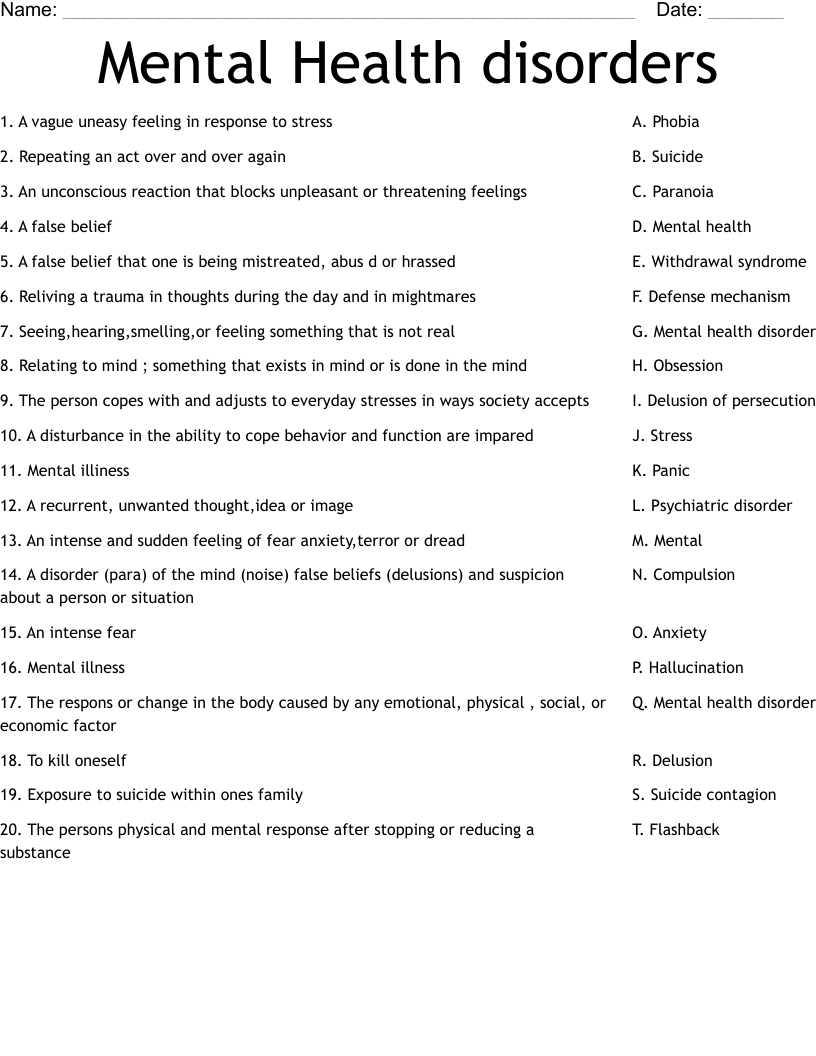5 Bipolar Disorder Worksheets for Better Mental Health

Managing bipolar disorder requires a multifaceted approach, integrating medical treatment, therapy, lifestyle adjustments, and self-help strategies. Among these, the use of bipolar disorder worksheets can be incredibly beneficial in providing structure and insight into one's mental health journey. These worksheets are designed to help individuals track mood swings, manage symptoms, and foster self-awareness, which are all critical in living well with bipolar disorder. In this post, we'll explore five different types of worksheets that can significantly enhance your mental health management strategy.
1. Mood Tracking Worksheet

One of the core components of managing bipolar disorder is understanding and tracking one's mood swings. A Mood Tracking Worksheet serves as an excellent tool for this purpose. Here's how you can utilize it:
- Record Daily Moods: Note the date, and on a scale from 1 to 10, rate your mood at different times of the day. This helps in recognizing patterns or triggers.
- Identify Triggers: Alongside mood, jot down any potential triggers like sleep disruptions, stressful events, or changes in routine.
- Note Symptoms: Track symptoms that accompany mood changes such as energy levels, appetite changes, sleep disturbances, or cognitive issues.
Here's a simple mood tracking table:
| Date | Morning | Midday | Evening | Triggers | Symptoms |
|---|---|---|---|---|---|
| MM/DD/YYYY | 5 | 7 | 3 | Argument with partner | Low appetite, insomnia |

🧐 Note: Maintaining a regular schedule with this worksheet can help detect patterns before they become problematic, allowing for timely intervention.
2. Daily Planner Worksheet

A structured daily routine can stabilize mood fluctuations significantly. Here's how a Daily Planner Worksheet can assist:
- Set Schedules: Outline daily activities, including work, personal time, exercise, meals, and medication reminders.
- Structure Mental Health Goals: Include time for relaxation, therapy sessions, or engaging in activities that boost mood and well-being.
- Review and Adjust: At the end of the day, reflect on what was planned versus what actually happened, making adjustments for future planning.
Using a planner not only helps in organizing daily life but also in maintaining a sense of control over one's life, which is crucial for those with bipolar disorder.
3. Trigger Identification Worksheet

Identifying and managing triggers is key to preventing manic or depressive episodes. Here's how this worksheet works:
- List Potential Triggers: Start by identifying common triggers like lack of sleep, stress, or significant life changes.
- Track Occurrence: Note when these triggers are present or when you encounter them in daily life.
- Observe Mood Changes: Document how your mood changes in response to these triggers, which can help in creating a strategy to avoid or mitigate their impact.
This worksheet aids in proactive management by providing clear visibility into the cause-and-effect relationship between triggers and mood shifts.
4. Cognitive Behavioral Therapy (CBT) Worksheet

CBT is highly effective for people with bipolar disorder as it addresses thought patterns and behaviors that influence mood. Here's how to use a CBT worksheet:
- Identify Negative Thoughts: Record any negative, irrational, or unproductive thoughts.
- Challenge These Thoughts: Question the validity of these thoughts. Are they based on facts or emotions?
- Develop Rational Responses: Replace negative thoughts with more balanced or positive alternatives.
- Plan Action: Outline what you can do to change your behavior or situation based on this new understanding.
CBT worksheets are powerful in reshaping one's cognitive landscape, promoting healthier thought patterns and responses.
5. Self-Care Worksheet

Self-care is not just a buzzword; it's a critical aspect of managing mental health, especially for individuals with bipolar disorder:
- Daily Self-Care Activities: List activities that contribute to your well-being, like exercise, reading, meditation, or engaging in hobbies.
- Weekly Goals: Set achievable self-care goals for the week. This might include social activities, personal care, or spiritual practices.
- Reflection: At the end of each day or week, reflect on how these activities influenced your mood and well-being.
Ensuring regular self-care promotes resilience and helps in maintaining mental equilibrium.
In sum, these five bipolar disorder worksheets provide structured tools for individuals to monitor, reflect, and manage their mental health effectively. By tracking mood, planning daily activities, identifying triggers, challenging negative thoughts, and prioritizing self-care, individuals with bipolar disorder can enhance their ability to live fuller, more stable lives. Each worksheet offers a different perspective and approach, catering to various aspects of living with the condition.
How often should I use these worksheets?
+
It’s beneficial to use these worksheets daily for tracking and planning, but reflective exercises like CBT can be done weekly or as needed.
Can I customize these worksheets?

+
Absolutely! Customizing them to suit your needs or daily routine can make them more effective and personal.
Do these worksheets replace therapy or medication?

+
No, they are tools to complement medical and therapeutic interventions, not replace them.